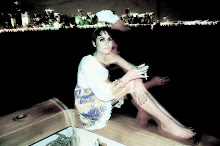Reading the Japanese novel The Miner by Söseki. It was criticized harshly, rejected for its explorations into man's psyche and the dissection of human actions. He was a highly acclaimed author, however, it was for his fiction; whereas The Miner is never spoken of or included in the selected works because it is considered an 'anti-novel'. I don't believe this was at all his point. Tomorrow I have to finally write a paper on this, but for now what I find incredibly interesting is other literature The Miner has been compared to: Dostoyevsky's The Double (1846), Strindberg's Miss Julie (1888), Ionesco's Victims of Duty (1952), along with Robbe-Grillet, and in regards to stream-of-consciousness Proust, Joyce, Camus and Faulkner. If only such names didn't make me so damn curious, maybe I could stay on track.
The Afterward
"But is rarely attempting to convince the reader of the immediate reality of what passes through the protagonist's mind. By the sixth paragraph, it becomes clear that the narrator is writing, commenting on his own thought processes in retrospect, and we are reading his pages, not floating somewhere inside his brain. There is an eccentric consciousness of consciousness here that is more reminiscent of Beckett's bedridden writer/narrators Molloy and Malone...Beckett's invincibly comic method, which locates comedy in the very movements of the human mind in such works as The Unnamable" (loved this, and at the final moment used it for my Colloquium!)









No comments:
Post a Comment